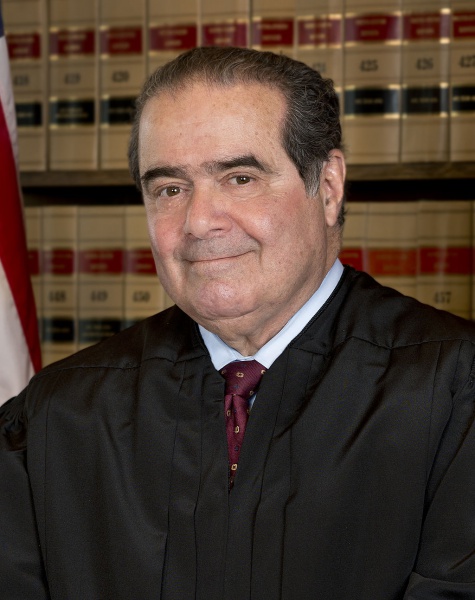If I have brought any message today, it is this: Have the courage to have your wisdom regarded as stupidity. Be fools for Christ. And have the courage to suffer the contempt of the sophisticated world.
He was famous for his unyielding opinions, scathing dissents and witticisms, but Justice Antonin Scalia was much more than a brilliant lawyer and steadfast Supreme Court justice. He was a devout Roman Catholic, a family man and a great friend even to his ideological enemies. Scalia was born in Trenton, New Jersey, to Sicilian immigrant Salvatore Scalia and firstgeneration Italian-American Catherine Panaro. He graduated valedictorian three times: from St. Francis Xavier High School, Georgetown University and Harvard Law School.
After he received his law degree, Scalia married Maureen McCarthy and began working at the law offices of Jones, Day, Cockley & Reavis (Now Jones Day) in Cleveland. He spent six years excelling in corporate law before turning to academia. In 1967, he and his young family moved to Charlottesville where he became an administrative law professor at the University of Virginia. He didn’t remain there long, as he was called to public service in 1972. President Richard Nixon appointed him general counsel for the Office of Telecommunications Policy. He was then appointed assistant attorney general for the Office of Legal Council in 1974.
President Ronald Reagan appointed Scalia to the Court of Appeals for the District of Columbia in 1982, where people first noticed his sharp wit. When Chief Justice Warren Burger retired, Reagan nominated Scalia for a seat on the U.S. Supreme Court; he was confirmed by the Senate 98-0 as an associate justice in 1986.
Scalia held to the judicial philosophy of originalism. This doctrine does not accept the Constitution as a “living document” but, rather, holds that any interpretation must adhere to original intent of the founders. Scalia had no interest in judicial activism, believing that any major change should be done by the people’s representatives in the legislature. When explaining his views on a living constitution, he said, “Let’s just cut it out. Go back to the good, old dead Constitution.”
Scalia was also known for his colorful language. In his dissenting opinion for King v. Burwell, he called the majority decision allowing the U.S. government to provide tax subsidies for health insurance “interpretive jiggery-pokery.” In that same opinion, he spoke of “pure applesauce” and even referred to the law as “SCOTUScare.” When the Court struck down the Defense of Marriage Act in 2013, Scalia called the majority reasoning “legalistic argle-bargle.”
Despite his strong personality, Scalia considered the other justices more than just colleagues—he considered them friends. He was especially close to Justice Ruth Bader Ginsburg, whose judicial philosophy was very different from his own. Their warm friendship inspired the one-act opera “Scalia/Ginsburg.”
Scalia and Maureen had nine children and more than 30 grandchildren. The couple took pride in raising their children traditionally and devoutly Catholic, similarly to Scalia’s own upbringing. This faith kept the family close. With Scalia often busy with work, their most precious bonding time together as family occurred weekly during mass at St. Matthew’s Cathedral in Washington. Two of the children followed in their father’s footsteps and became lawyers.
Antonin Scalia died suddenly of natural causes on February 13, 2016.


